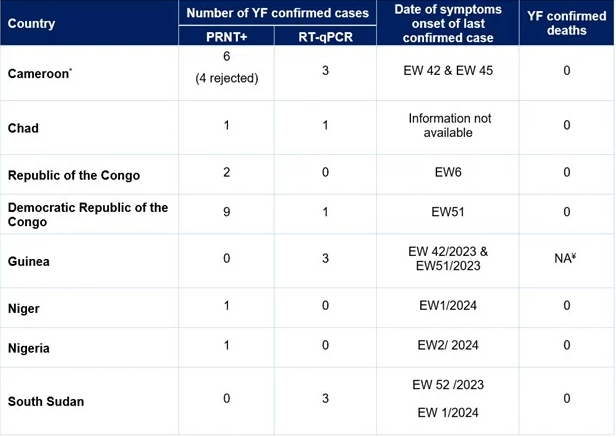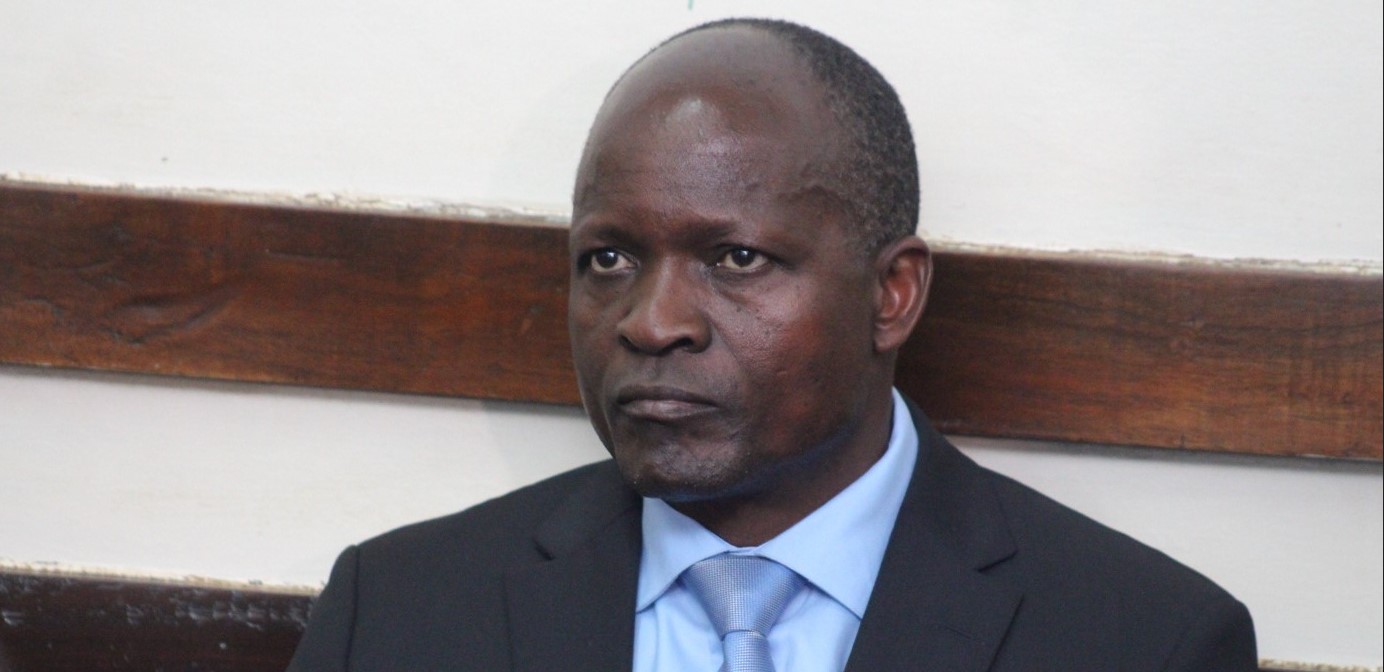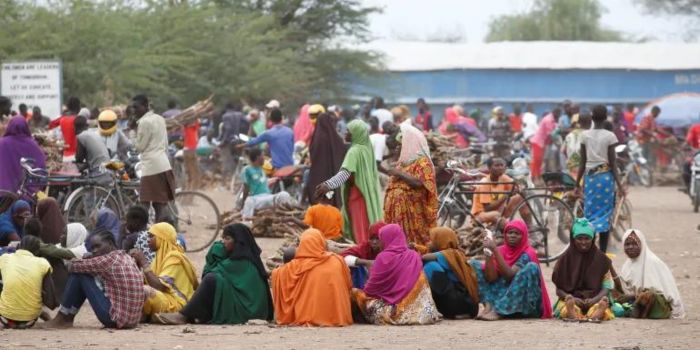Uganda extends yellow fever vaccination drive amid growing threat

This is in a bid to have more people vaccinated and protect the population against the threat of yellow fever, which is endemic in the country.
The Ministry of Health in Uganda has extended the mass vaccination of its citizens against yellow fever to Sunday, April 14, 2024.
This is in a bid to have more people vaccinated and protect the population against the threat of yellow fever, which is endemic in the country. The target is to immunise 14 million people across 53 districts, including key regions such as Kampala, Masaka, Ankole, Soroti, and Moroto.
More To Read
- One in six cancer drugs in Kenya, Ethiopia found to be substandard
- Ministry of Health waives medical bills for Nairobi protest victims
- Ugandan opposition politician Kizza Besigye to deliver keynote address from prison at PFP party launch
- Mpox continues to spread in Africa, with 18 countries reporting active transmission
- Ministry of health to deploy 6,484 healthcare interns nationwide
- Ethiopia nears milestone in tobacco control - WHO
The World Health Organisation (WHO) has reported confirmed cases of yellow fever in Uganda, Burkina Faso, Cameroon, Central African Republic, Chad, Republic of the Congo, Cote d'Ivoire, Democratic Republic of the Congo, Guinea, Niger, Nigeria, South Sudan, and Togo since the beginning of 2023 up to February 2024.
According to WHO Africa, yellow fever is a viral infection that is transmitted through mosquito bites by mosquitoes that carry the virus. These mosquitoes usually bite during the day and are common in some areas of Africa and South America.
Symptoms of the disease include fever, yellowing of the skin and eyes (hence the name yellow fever), dark urine, abdominal pain with vomiting, and bleeding from the mouth, nose, eyes, or stomach.
WHO Africa further indicates that the disease continues to cause outbreaks, with 90 per cent of reported global cases occurring in Africa, and up to half of those developing severe disease dying.
The first recorded outbreak occurred in Western Uganda in 1942. Since 2010, Uganda has had an escalating number of outbreaks, with the most recent in Wakiso district, which had outbreaks in 2020 and 2022.
Last year, yellow fever outbreaks were recorded in Buikwe and Buvuma districts, and this means that many Ugandans are not immune to yellow fever, hence the need to rapidly roll out the vaccine.
Dr Diana Atwine, the Permanent Secretary at the Ministry of Health, Uganda, has emphasised the importance of achieving a vaccination rate of at least 80 per cent, to minimize the risk of outbreaks. She also urged parents to consent to their children's vaccination and called upon religious, cultural, and political leaders to mobilise their communities to participate in the campaign
Dr Atwine has added that the Ministry is also phasing out the so-called yellow fever cards that have been issued from the airport, citing instances of forgery for travel purposes.
"We are going to phase out all those so-called fake yellow fever cards that have been issued from the airport. Our cards are going to have a security feature that will be hard to forge. Those that will not be captured in our system will not get the vaccination card and will therefore not be able to travel abroad," she added.
Yellow fever cards are required for people traveling from endemic countries to yellow fever-free countries.
 Classification of reported confirmed yellow fever cases by country in the WHO African Region based on regional reference laboratory results and outputs of classification sessions, from 1 October 2023 (EW40/2023) to 21 February 2024 (EW8/2024).
Classification of reported confirmed yellow fever cases by country in the WHO African Region based on regional reference laboratory results and outputs of classification sessions, from 1 October 2023 (EW40/2023) to 21 February 2024 (EW8/2024).
Top Stories Today














































